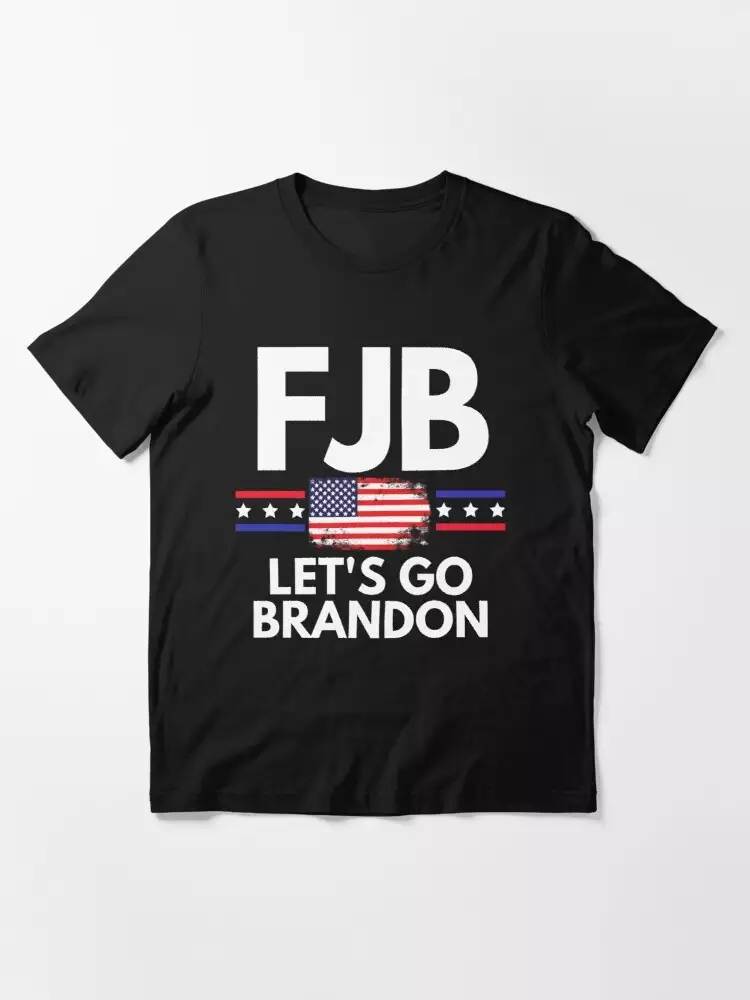In recent years, political discourse in the United States has evolved into a vibrant yet often contentious arena where opinions are expressed not just through words but also through fashion. One striking manifestation of this trend is the emergence of anti-Biden shirts, which have gained traction among various groups as a form of protest and commentary on the current administration. These shirts, often emblazoned with bold slogans and graphic designs, serve as both a fashion statement and a rallying cry for those who oppose President Biden’s policies and leadership style.
The rise of these garments has sparked conversations about the role of apparel in political expression. Supporters argue that wearing anti-Biden shirts embodies their discontent and frustration, while critics view this trend as a reflection of the polarized state of American politics. As these shirts become increasingly visible at rallies, protests, and everyday settings, they invite a closer examination of how they contribute to the broader dialogue surrounding the presidency and the deepening divide among the electorate. Lets Go Brandon Shirt into the significance of anti-Biden shirts in contemporary political discourse, exploring their origins, impact, and the heated reactions they provoke across the political spectrum.
The Origins of Anti-Biden Sentiment
The rise of anti-Biden sentiment can be traced back to the political polarizations that intensified during the 2020 presidential election. As Joe Biden emerged as the Democratic nominee, his policies and positions prompted strong reactions from various factions within the Republican Party and beyond. Critics began to frame his leadership style and decisions through a lens of skepticism, leading to a burgeoning counter-narrative characterized by dissatisfaction and mistrust.

Social media played a crucial role in the proliferation of anti-Biden merchandise, including the now-iconic anti-Biden shirts. Platforms like Twitter, Facebook, and Instagram became hotbeds for sharing memes, slogans, and merchandise that expressed discontent with Biden’s presidency. This digital landscape facilitated a culture of rapid dissemination, allowing like-minded individuals to unite under common grievances, further fueling the desire for visible forms of protest, like clothing.
The emergence of these shirts also reflects broader societal trends, including a growing disillusionment with politics as usual. For many, anti-Biden shirts signify not just opposition to the current administration but also an expression of frustration with perceived government overreach, economic policies, and handling of key issues. As these sentiments gained traction, they evolved beyond simple protest wear into a symbol of a larger movement, connecting individuals across various demographics who share similar frustrations with the state of the nation.
Impact on Political Discourse
The emergence of anti-Biden shirts reflects a significant shift in how political opinions are expressed in public spaces. These shirts serve as a form of wearable protest, allowing individuals to convey their dissent against the current administration. This trend not only contributes to the visual landscape of political discourse but also encourages more people to engage in conversations about their beliefs and grievances. As these shirts become more commonplace, they can help to normalize vocal opposition, making it easier for individuals to express dissent in various settings.
Moreover, the proliferation of anti-Biden shirts has sparked debates around the boundaries of political expression. https://www.antibidenshirts.com/ argue that such attire is a vital outlet for free speech and a means of resisting perceived government overreach. Critics, however, may view these shirts as contributing to division and polarization within society. This tension illustrates the complexity of modern political discourse, where displays of disagreement can either foster dialogue or exacerbate societal rifts. The shirts have thus become symbols of broader ideological battles, influencing how different groups interact with one another.
Finally, the rise of anti-Biden shirts has implications for political branding and identity. Fuck Joe Biden Shirt who wear these shirts often align themselves with specific political movements that challenge the current administration. This phenomenon not only galvanizes supporters but also alienates opponents, reinforcing an "us vs. them" mentality. As such expressions of political identity proliferate, they can lead to increased activism as individuals seek to align themselves with like-minded communities. Ultimately, the role of anti-Biden shirts in political discourse underscores the ongoing evolution of how citizens engage with and respond to leadership, shaping the landscape of future political discussions.
The Future of Political Merchandise


As political discourse continues to evolve, the marketplace for political merchandise is likely to expand and diversify. With social media playing a crucial role in shaping opinions and mobilizing supporters, the demand for unique and expressive political statements, such as anti Biden shirts, is expected to grow. These items not only serve as tools for self-expression but also as rallying points for like-minded individuals, forging a sense of community among those who share similar views.
Innovation in design and production processes will also influence the future of political merchandise. With advancements in technology, it is now easier than ever for creators to produce customized items that capture the zeitgeist of current events and sentiments. As a result, consumers may find a wider array of choices that reflect their political opinions more accurately, moving beyond generic slogans to more targeted and impactful messages that resonate with specific audiences.
The commercialization of political merchandise raises questions about authenticity and sincerity in political engagement. While many individuals purchase items like anti Biden shirts as a form of protest or expression, others may see this as a way to profit from political divisions. As the market continues to grow, it will be interesting to observe how this blend of commerce and activism influences the broader political landscape and whether it fosters genuine political discourse or simply commodifies dissent.
